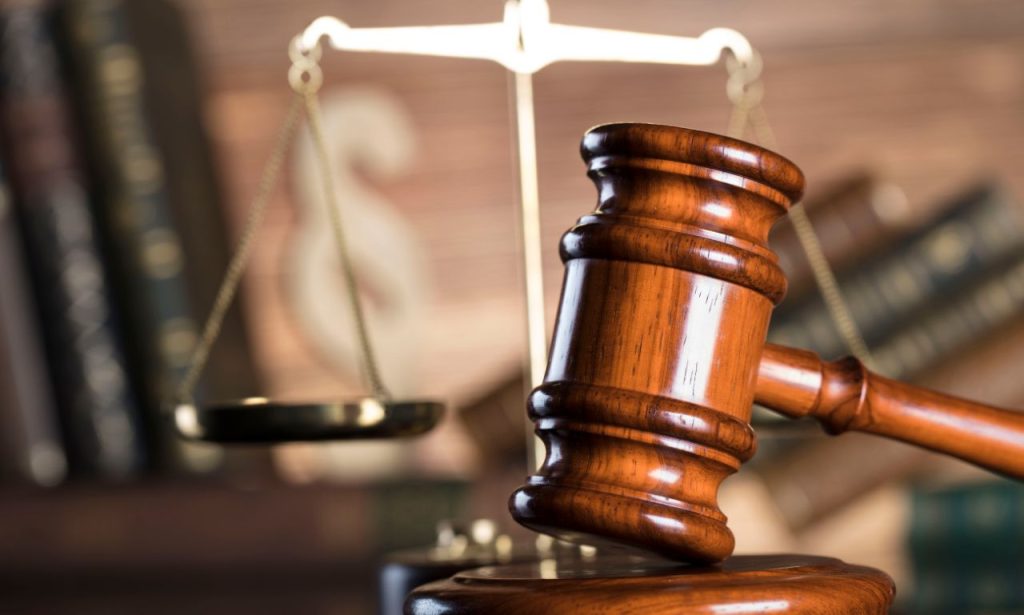Have you ever wondered if those strange occurrences in your life might be more than coincidence? That feeling when your colleagues suddenly act differently around you, or when you notice an unfamiliar car parked across the street for days? While it might just be paranoia, these could potentially be signs of something more serious – like a federal investigation. Let’s explore the common indicators that might suggest you’re under federal scrutiny.
Interviews and Interrogations
Unexpected Visits from Federal Agents
If FBI, DEA, IRS, or other federal officers show up at your home or workplace asking questions, this is a clear indicator of federal interest in your activities. These agents might present their visit as “just routine” or claim they’re “just gathering information,” but make no mistake – these conversations are strategic. They’re looking for inconsistencies, admissions, or new leads to further their investigation.
Federal agents are skilled interviewers trained to put you at ease while extracting potentially incriminating information. They might appear friendly and conversational, but remember that anything you say can be used against you later.
Friends or Associates Being Questioned
Federal investigators sometimes approach people in your circle before coming to you directly. If colleagues, business partners, employees, or friends mention being questioned about you or your activities, this could signal an active investigation.
Pay attention if associates are asked specific questions about your business practices, finances, or personal conduct.
Professional and Social Changes
Workplace Tensions
Have you observed a sudden change in the way you interact with coworkers or business associates? There may be more to this than office politics. People frequently behave differently towards the subject of a federal investigation after learning they have been interviewed for it. You may observe that coworkers treat you with unusual formality, avoid having private conversations with you, or exclude you from meetings that you would typically attend.
Unusual Business Obstacles
Federal scrutiny can cause unexpected business challenges. You might find business deals suddenly falling through, partnerships dissolving without clear explanation, or new regulatory hurdles appearing.
Banks or financial institutions might question transactions they previously processed routinely, or vendors might change their business terms with you. These obstacles could be coincidental or result from institutions being contacted as part of an investigation.
Increased Surveillance
Physical Surveillance
Signs might include unfamiliar vehicles parked near your home or office, individuals who appear to be watching your movements, or noticing the same strangers repeatedly in different locations you visit.
Years ago, I was helping a client who had noticed a van parked outside his business for several days. He initially dismissed it as nothing concerning, but later discovered it was part of an ongoing federal investigation into his industry. Those observations became crucial in developing our defense strategy.
Digital Surveillance

Electronic surveillance is increasingly common in today’s digital world. Unusual phone behavior, computer performance issues, or strange activity on your accounts might indicate monitoring.
While technical glitches happen for many reasons, consistent problems across multiple devices could suggest something more concerning, especially if accompanied by other warning signs.
Grand Jury Subpoenas
Witness Subpoenas
Grand juries work with prosecutors to determine if there’s enough evidence to bring criminal charges.
A grand jury subpoena means you’re being compelled to testify or provide documents as part of an investigation. While receiving a subpoena doesn’t necessarily mean you’re the target, it confirms an active federal investigation is underway.
Subpoenas for Records
Federal investigators often seek financial records, communication logs, or business documents through subpoenas to banks, phone companies, or other entities that hold your information.
You might learn about these requests if an institution notifies you that your records have been subpoenaed. Sometimes, however, these subpoenas come with gag orders preventing notification, meaning this evidence gathering could happen without your knowledge.
Legal Documents
Search Warrants
Perhaps the most unmistakable sign of a federal investigation is executing a search warrant at your home, office, or other property. This requires probable cause and judicial approval, indicating the investigation has advanced.
During the execution of a search warrant, agents will seize potential evidence, including documents, computers, phones, and other materials relevant to their investigation. This is almost always a clear sign that you’re at least a subject, if not a target, of a federal investigation.
Preservation Letters
Preservation letters may be sent to service providers, such as social media firms, cloud storage services, or email platforms, directing them to preserve your data. As an early warning sign, some businesses alert users to these requests.
These letters typically precede formal subpoenas or warrants and indicate federal interest in your digital activities and communications.
Target Letter
Official Notification
A target letter is a formal notification from a U.S. Attorney’s Office that you’re the target of a federal investigation. This letter typically identifies the crimes being investigated and advises you of your rights.
Receiving a target letter is one of the clearest indicators that prosecutors believe you’ve committed a federal crime and are preparing to seek an indictment. This is absolutely a time to have legal representation if you haven’t secured it already.
Proffer Requests
Sometimes federal prosecutors will invite you to provide a “proffer” – essentially an interview where you share information about the matter under investigation. This invitation often comes through your attorney and indicates you’re at least a subject of investigation.
While proffers sometimes help subjects avoid charges, they can also be risky without proper legal guidance, as statements made during these sessions could be used to build a stronger case against you.
Complaints and Tips
Whistleblower Actions
If you learn that a current or former employee, business partner, or competitor has filed a whistleblower complaint or spoken to federal authorities about your activities, an investigation likely follows.
Whistleblower complaints are taken seriously, especially in regulated industries or when they involve allegations of fraud against government programs.
Regulatory Inspection Increases
A sudden increase in regulatory oversight – surprise inspections, detailed audits, or unusual scrutiny of routine reports – might indicate that a regulatory agency is working alongside a federal investigation.
These inspections generate additional documentation that could potentially be used in building a federal case. Multiple agencies conducting reviews in a short timeframe is particularly noteworthy.
What To Do If You Suspect You’re Under Federal Investigation
Avoid Self-Incrimination
If you see signs of a federal investigation, your first priority should be to avoid self-incrimination. This means being extremely selective about who you talk to and what you say.
Avoid talking to friends, coworkers, or relatives about the possible investigation. These discussions aren’t protected, and these people might be called as witnesses in the future. Above all, if you are not accompanied by an attorney, do not try to directly explain your position to federal agents.
Prepare for Legal Proceedings
Begin gathering and organizing relevant documents and information that might pertain to the suspected investigation. Create a timeline of events and preserve evidence that might support your defense.
To avoid further obstruction of justice charges, which are frequently simpler to prove than the underlying accusations, take great care not to change, destroy, or conceal any potential evidence.
Stay Calm
Discovering you’re under federal investigation is undoubtedly stressful, but panic typically leads to poor decisions. Maintain your normal routine as much as possible while being mindful of your actions.
Avoid making dramatic changes to your lifestyle, business operations, or financial arrangements, as these could be interpreted as consciousness of guilt or attempts to hide assets.
Seek Legal Counsel

If you suspect you’re under federal investigation, the most important step is to consult with an experienced federal criminal defense attorney immediately. Don’t wait for charges to be filed or for agents to approach you directly.
I’ve seen cases where early intervention by qualified counsel led to investigations being closed without charges, or to significantly reduced charges compared to what might have been filed without proactive legal representation.
Conclusion
Being the subject of a federal investigation is a serious situation that needs to be handled carefully. By identifying the warning signs early on, whether they are formal legal notices, increased surveillance, changes in professional relationships, or unusual interactions with federal agents, you put yourself in the best position to safeguard your rights and future.
Remember that federal investigations often involve multiple agencies and extensive resources. The government typically builds its case methodically before filing charges, so early recognition and response are crucial.
ALSO READ:
FAQs
A: Yes, many federal investigations proceed for months or even years without the subject’s knowledge, particularly during the evidence-gathering phase.
A: Generally, no. Despite how agents may present their intentions, you should consult with an attorney before speaking with federal agents.
A: Not necessarily. You might receive a subpoena as a witness rather than a subject or target. However, it does indicate an active investigation that you should take seriously.
A: Unusual battery drain, unexpected heating, strange sounds during calls, or unusual behavior when powered off might indicate monitoring, though these can also have innocent explanations.
A: A witness has information but isn’t suspected of wrongdoing; a subject’s conduct is within the scope of the investigation, but they may not be charged; a target is someone the prosecutor believes has committed a crime.


